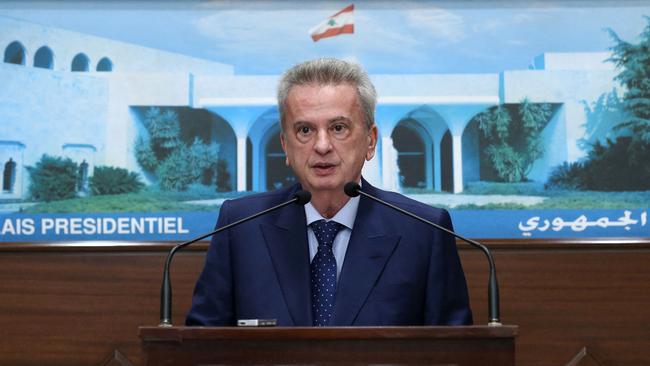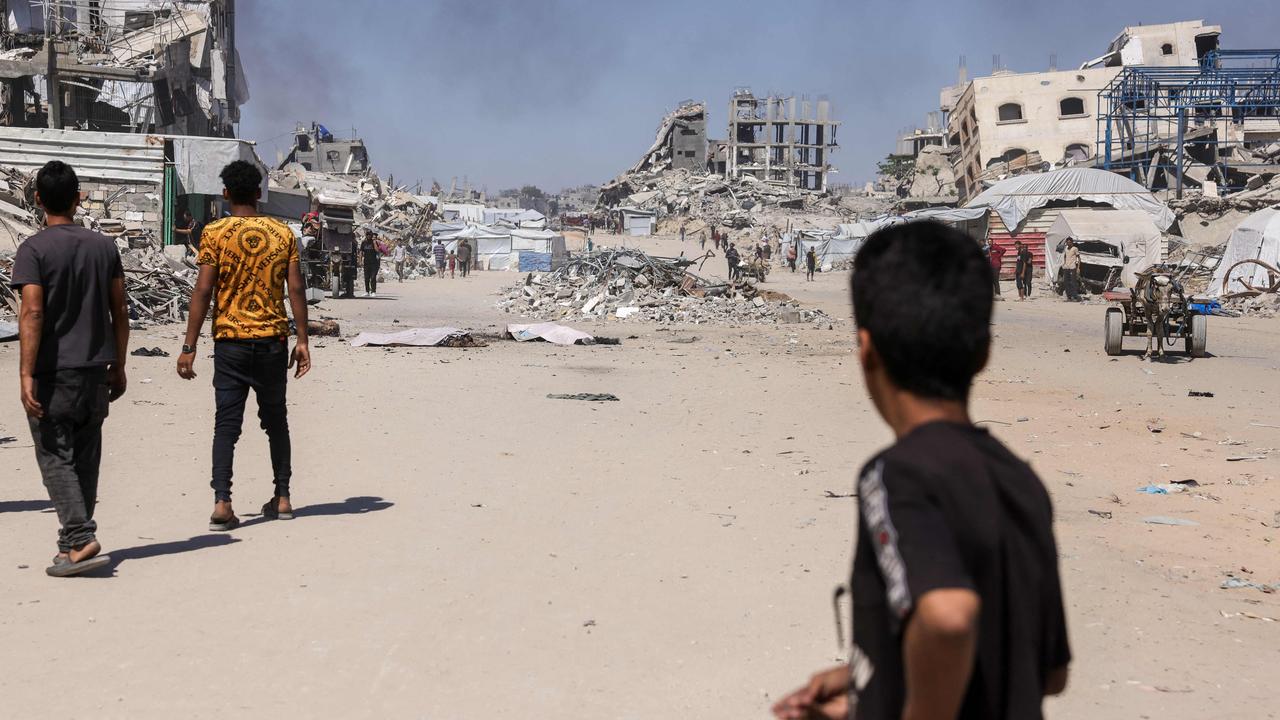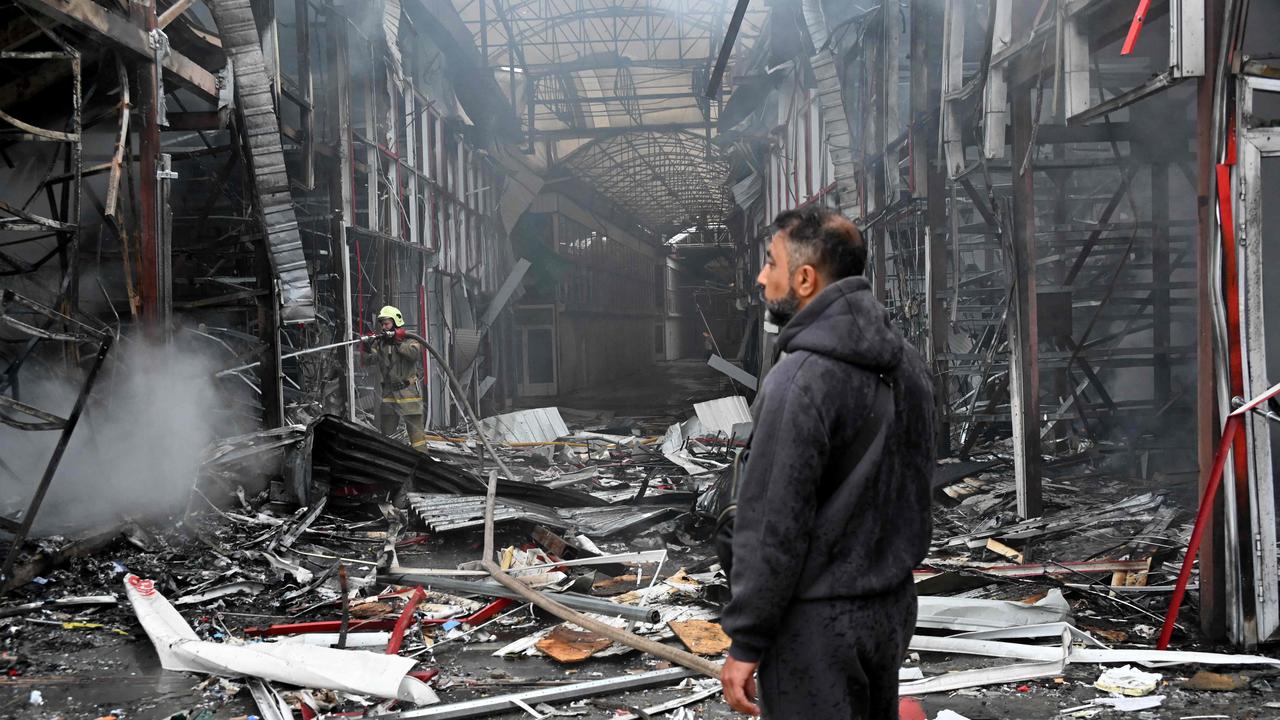Lebanon’s former central banker arrested on embezzlement charges
Ex-Merrill Lynch banker is the face of one of the world’s worst economic collapses in the past century and is suspected of mass fraud.

Lebanon’s former central bank governor has been arrested in Beirut on embezzlement charges, as the political establishment looks to head off new international sanctions that could further cripple the economy.
Riad Salameh is blamed by many for sparking a financial crisis in 2019 that led to one of the world’s worst economic collapses in the past century and deepened Lebanon’s political instability. A massive explosion of ammonium nitrate stored at a Beirut port in 2020 quickened the Lebanese economy’s free fall.
Potentially worsening Lebanon’s predicament, militia Hezbollah and Israel are now inching towards an all-out war.
The US Treasury imposed sanctions on Mr Salameh last year, accusing him of using his position to enrich himself by funnelling hundreds of millions of dollars through shell companies to invest in real estate in Europe. France, which last year issued an arrest warrant for Mr Salameh through Interpol, is also investigating him for embezzlement.
Lebanon’s public prosecutor detained Mr Salameh after an interrogation, the state-run National News Agency said.
Mr Salameh has previously denied any wrongdoing, saying he amassed personal wealth in the private sector before spending 30 years at the helm of Lebanon’s central bank until last year.
Legal experts say his indictment and temporary detention by Lebanon’s public prosecutor are unlikely to result in extradition to France, where he also holds citizenship. Lebanese law generally prohibits extradition of its citizens. Analysts say that given the access Mr Salameh has to information about the financial activities of Lebanon’s most powerful people, authorities are likely trying to prevent his extradition and could drag out legal procedures for years.
Ali Noureddine, a Lebanese economist and commentator, said Mr Salameh’s indictment was a step toward accountability because it gave credibility to the allegations against him, especially if it led to further investigations or the charging of others.
Mr Salameh’s brother, a son, primary assistant and a former partner have also been investigated and sanctioned by foreign governments.
“In my opinion we have opened a new chapter, a very positive development,” Mr Noureddine said. “But we need to see what brought us here. Either they were afraid or they were forced to do this to protect him, or there is pressure from abroad.”
Mr Noureddine said the timing of Mr Salameh’s detention appeared linked to an expected decision by the Paris-based Financial Action Task Force on whether to place Lebanon on its grey list for money laundering and counterterrorist financing.
A listing by FATF, an intergovernmental body that audits nations’ ability to detect and disrupt illicit finance, would require banks to conduct additional checks and compliance requirements, increasing the cost of cross-border funding and transactions.
“They are trying to avoid this decision by showing abroad that the judiciary is investigating,” Mr Noureddine said.
Efforts to hold Lebanese officials accountable for the economic collapse and the blast, which killed more than 200 people and caused as much as $US15bn in damage, have so far come to little. Many Lebanese blame the country’s political factions for rejecting overhauls that might have saved Lebanon from financial ruin, to protect those responsible within elite circles.
In 2022, a Lebanese judge subpoenaed Mr Salameh for questioning and the country’s State Security raided three of his homes. The judge was removed from the case.
Lebanon’s financial crisis followed years of government mismanagement and corruption.
The country’s banking system tipped into insolvency in 2019. The banks closed their doors for two weeks during a wave of protests, but the closure backfired badly, prompting a run on the banks, which then locked depositors out of their accounts.
The Wall Street Journal



To join the conversation, please log in. Don't have an account? Register
Join the conversation, you are commenting as Logout